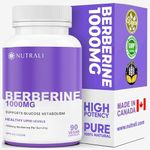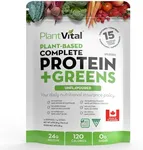Buying Guide for the Best Cholesterol Supplements
Choosing the right cholesterol supplement can feel overwhelming with so many options available. The key is to understand what each supplement offers and how it might fit your personal health needs. It's important to remember that supplements are not a replacement for a healthy diet or lifestyle, but they can support your efforts to manage cholesterol levels. Always consult with a healthcare professional before starting any new supplement, especially if you are taking medication or have existing health conditions.Active IngredientsActive ingredients are the main components in a supplement that are intended to help lower cholesterol. Common examples include plant sterols, stanols, red yeast rice, niacin, and soluble fiber. Each ingredient works differently; for example, plant sterols and stanols help block cholesterol absorption, while soluble fiber binds cholesterol in the digestive system. When choosing a supplement, look at the active ingredients and consider which ones have the most scientific support for cholesterol management. Your choice should be guided by your health goals and any advice from your healthcare provider.
DosageDosage refers to the amount of the active ingredient in each serving of the supplement. This is important because the effectiveness of a supplement often depends on taking the right amount. Dosages can vary widely between products, and more is not always better. Some ingredients, like niacin, can cause side effects at higher doses. When comparing supplements, check the label for the amount of each active ingredient and make sure it matches the recommended levels for cholesterol support. Your healthcare provider can help you determine the right dosage for your needs.
Form of SupplementSupplements come in various forms, such as capsules, tablets, powders, or gummies. The form can affect how easy it is for you to take the supplement regularly. For example, some people find capsules easier to swallow, while others prefer powders that can be mixed into drinks. Consider your personal preferences and any dietary restrictions when choosing the form. The best form is the one you are most likely to take consistently.
Additional IngredientsMany supplements contain extra ingredients like fillers, binders, or flavorings. Some may also include added vitamins or minerals. It's important to read the ingredient list to check for anything you might be allergic to or want to avoid, such as artificial colors or sweeteners. If you have sensitivities or dietary restrictions, look for products with minimal and natural additional ingredients.
Third-Party Testing and CertificationsThird-party testing means that an independent organization has checked the supplement for quality, purity, and accuracy of labeling. Certifications can include seals from groups like USP, NSF, or ConsumerLab. These are important because supplements are not as strictly regulated as medications, so third-party testing can give you confidence that you are getting what the label claims. If quality and safety are important to you, look for supplements with recognized certifications.
















